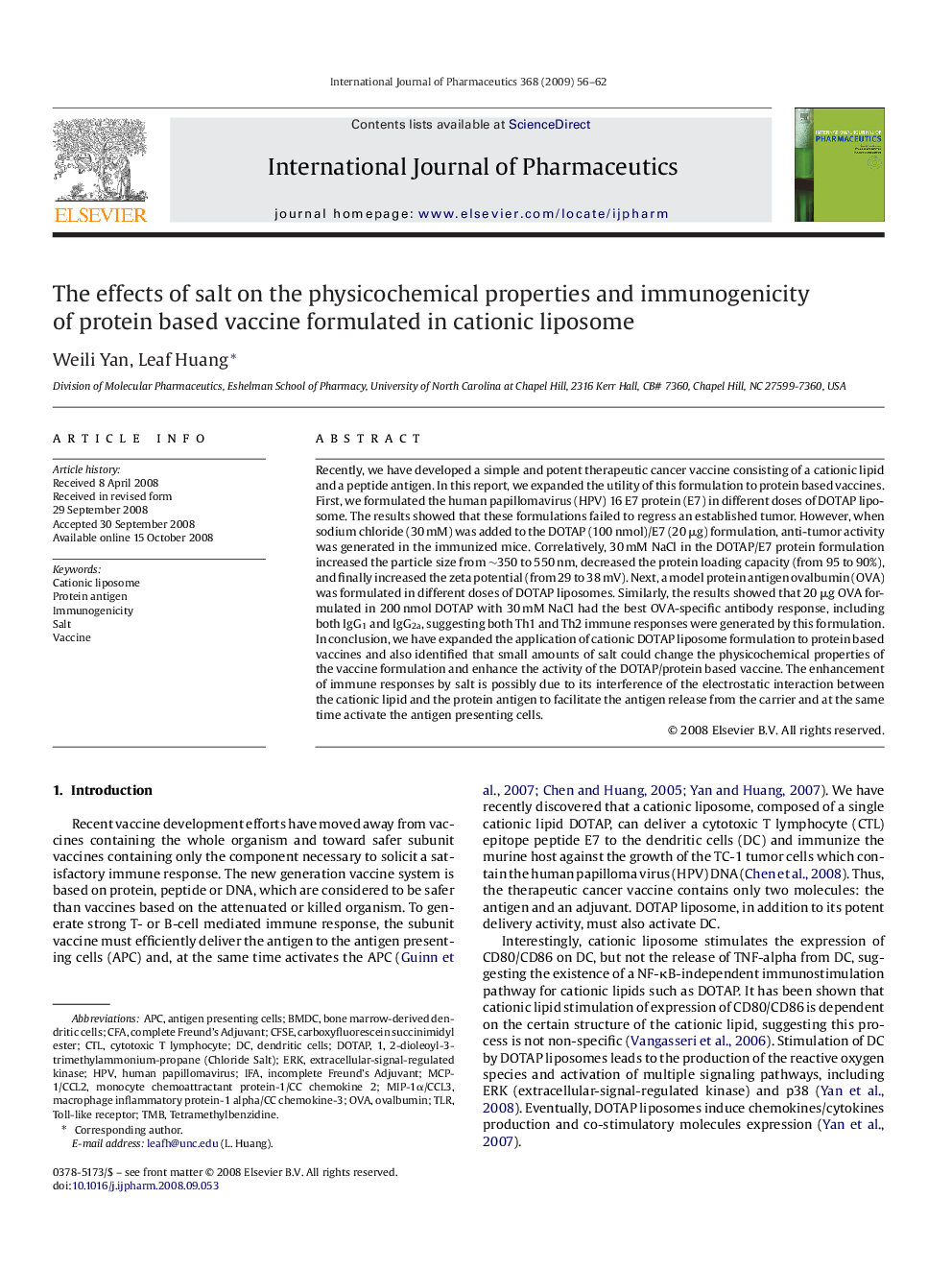| Article ID | Journal | Published Year | Pages | File Type |
|---|---|---|---|---|
| 2504972 | International Journal of Pharmaceutics | 2009 | 7 Pages |
Recently, we have developed a simple and potent therapeutic cancer vaccine consisting of a cationic lipid and a peptide antigen. In this report, we expanded the utility of this formulation to protein based vaccines. First, we formulated the human papillomavirus (HPV) 16 E7 protein (E7) in different doses of DOTAP liposome. The results showed that these formulations failed to regress an established tumor. However, when sodium chloride (30 mM) was added to the DOTAP (100 nmol)/E7 (20 μg) formulation, anti-tumor activity was generated in the immunized mice. Correlatively, 30 mM NaCl in the DOTAP/E7 protein formulation increased the particle size from ∼350 to 550 nm, decreased the protein loading capacity (from 95 to 90%), and finally increased the zeta potential (from 29 to 38 mV). Next, a model protein antigen ovalbumin (OVA) was formulated in different doses of DOTAP liposomes. Similarly, the results showed that 20 μg OVA formulated in 200 nmol DOTAP with 30 mM NaCl had the best OVA-specific antibody response, including both IgG1 and IgG2a, suggesting both Th1 and Th2 immune responses were generated by this formulation. In conclusion, we have expanded the application of cationic DOTAP liposome formulation to protein based vaccines and also identified that small amounts of salt could change the physicochemical properties of the vaccine formulation and enhance the activity of the DOTAP/protein based vaccine. The enhancement of immune responses by salt is possibly due to its interference of the electrostatic interaction between the cationic lipid and the protein antigen to facilitate the antigen release from the carrier and at the same time activate the antigen presenting cells.
